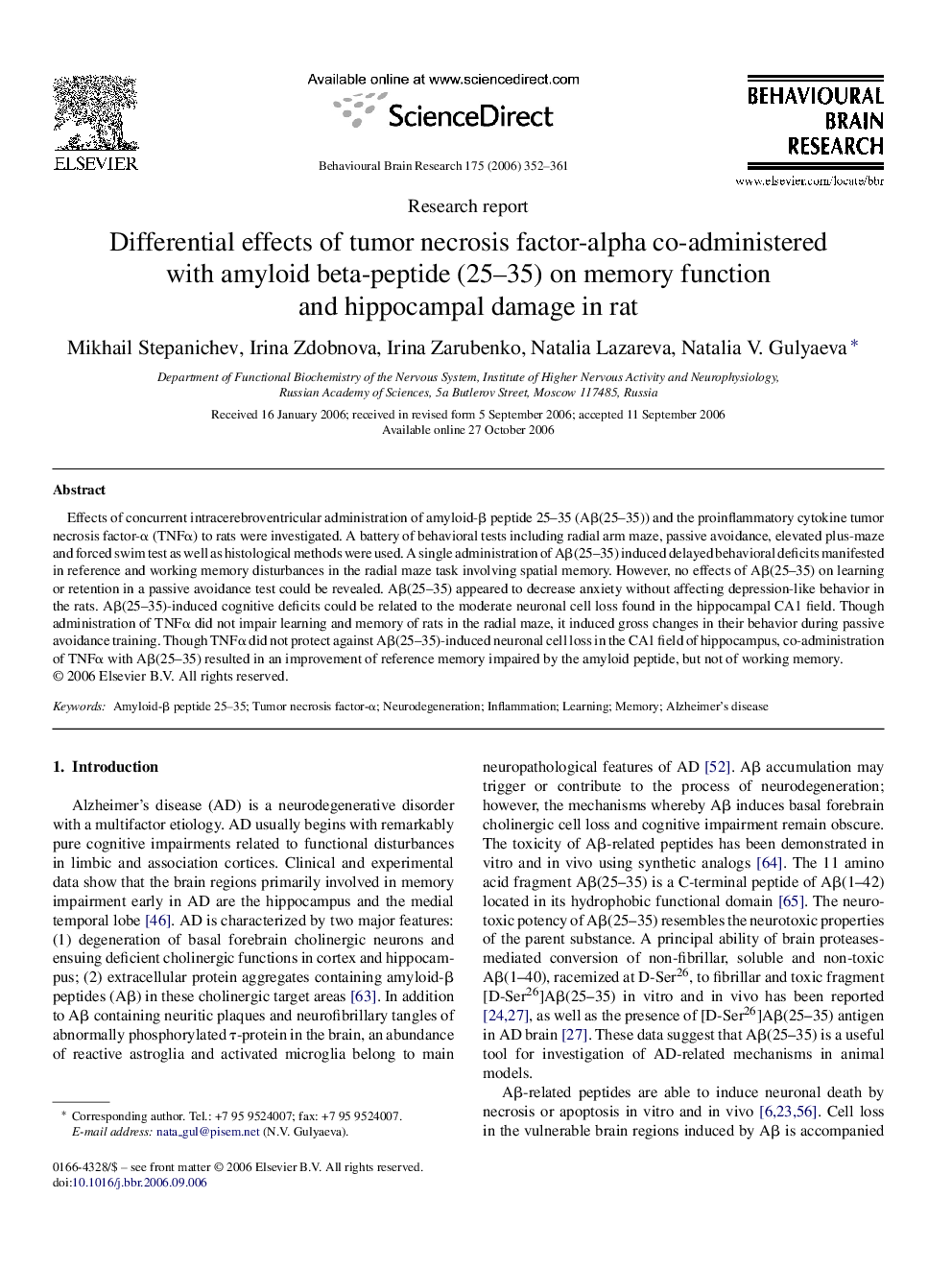| Article ID | Journal | Published Year | Pages | File Type |
|---|---|---|---|---|
| 4315906 | Behavioural Brain Research | 2006 | 10 Pages |
Effects of concurrent intracerebroventricular administration of amyloid-β peptide 25–35 (Aβ(25–35)) and the proinflammatory cytokine tumor necrosis factor-α (TNFα) to rats were investigated. A battery of behavioral tests including radial arm maze, passive avoidance, elevated plus-maze and forced swim test as well as histological methods were used. A single administration of Aβ(25–35) induced delayed behavioral deficits manifested in reference and working memory disturbances in the radial maze task involving spatial memory. However, no effects of Aβ(25–35) on learning or retention in a passive avoidance test could be revealed. Aβ(25–35) appeared to decrease anxiety without affecting depression-like behavior in the rats. Aβ(25–35)-induced cognitive deficits could be related to the moderate neuronal cell loss found in the hippocampal CA1 field. Though administration of TNFα did not impair learning and memory of rats in the radial maze, it induced gross changes in their behavior during passive avoidance training. Though TNFα did not protect against Aβ(25–35)-induced neuronal cell loss in the CA1 field of hippocampus, co-administration of TNFα with Aβ(25–35) resulted in an improvement of reference memory impaired by the amyloid peptide, but not of working memory.
